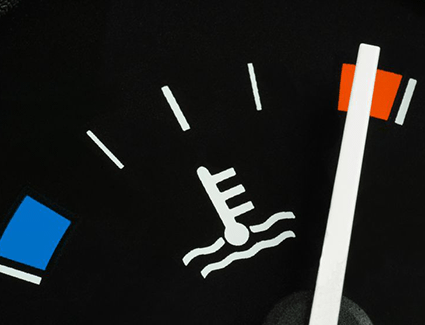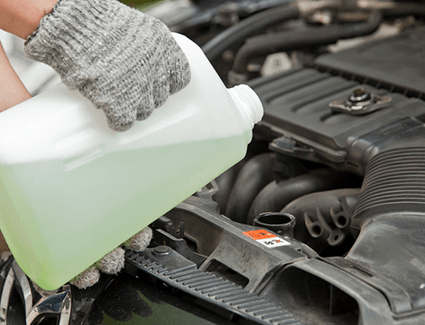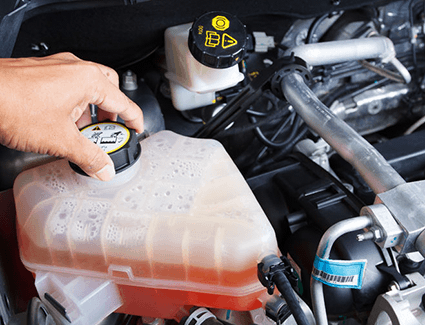5 Things To Know About Engine Coolant

The coolant in your vehicle plays a vital role in keeping your engine functioning, so it's a good idea to learn a little bit about it. On this page, we'll walk through several things you should know about coolant. If you have other questions, we invite you to contact us at Archer Volkswagen. Our specialists will be glad to help with whatever vehicle issues you may be having.


5. What Is Coolant?
Coolant is the fluid that keeps your engine from overheating. Internal combustion engines produce massive amounts of heat when running. In fact, this heat is so great that, if not mitigated in some way, it would damage the metal of the engine itself. This is where the cooling system comes in. The water pump moves coolant through the engine, where it picks up excess heat. The now-heated coolant makes its way to the radiator, where it is cooled down by air flow. Once it's been cooled, the coolant fluid makes its way through the cooling system again, keeping your engine running at safe temperatures.
4. What's the Difference Between Coolant and Antifreeze?
Usually, these two words refer to the same thing. Originally, water was used as coolant. This is where we get the term "water pump." But, while water is exceptional at heat transfer, it also freezes at 32° F/0° C. Even in Houston, we can reach these temperatures occasionally! To prevent this problem from occurring, companies began to produce coolant that consisted of distilled water and antifreeze agents that lower the freezing point of the water. These days, the terms "coolant" and "antifreeze" are used pretty much interchangeably. If a technician mentions adding antifreeze to your vehicle, they're not talking about adding a pure antifreeze agent like propylene glycol. Instead, they're referring to coolant made of a mixture of water and antifreeze.
3. Why Should I Use OEM Coolant?
Different manufacturers use different types of chemicals in their coolant. In addition to the different types of antifreeze, they may also use varying anti-corrosion agents (since water is corrosive). Using Volkswagen G11, G12, or G13 coolant ensures that you'll be getting the precise blend of antifreeze coolant designed specifically to work with your vehicle's cooling system and keep it at its best. Without this proprietary blend, other coolants may not be as effective or as long-lasting. Worse case, Coolants that aren't approved by Volkswagen could result in serious corrosion and repair bills.


2. How Can I Check My Coolant Level?
Checking your coolant level is important, since low coolant can cause your engine to overheat. Fortunately, the coolant is typically stored in a translucent reservoir, so you can check the level just by opening up the hood and taking a look. Of course, the engine should be turned off for this, but even if it's hot, the visible coolant level should always be between the Minimum and Maximum lines marked on the side of the reservoir. Another important thing to remember is never try and remove a radiator cap when the engine is warm. The release of pressure will often spray scalding coolant, which can cause serious burns and even blindness.
1. What Could Cause Low Coolant?
If your coolant level is lower than it should be, it's cause for concern, and is likely due to a leak. The hoses that shuttle the coolant to and from the radiator will need replacing at some point. If one of these hoses goes bad, it'll be pretty obvious that you're out of coolant because it'll all be in a big puddle under your car. A radiator with physical damage may also be the cause of an external leak, and that could be less noticeable at a glance if the leak is small enough. However, low coolant could also be caused by an internal leak due to a problem like a blown head gasket. This can be an even more serious problem. When a head gasket blows, coolant can leak into the combustion chambers. If your vehicle has this problem, you'll likely notice other symptoms like white smoke coming from your vehicle's tailpipe and a dramatic loss of power.


